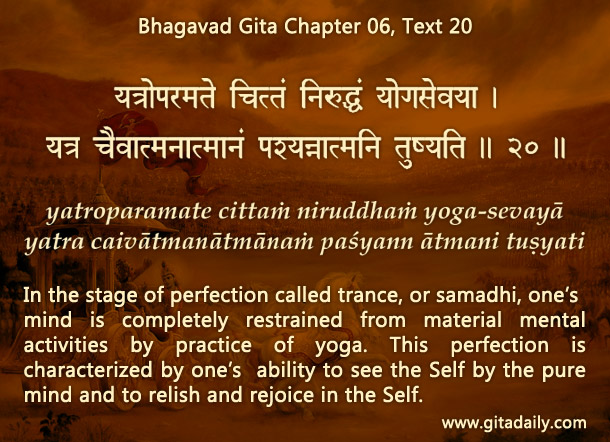Due to the spread of postmodernism, many people tend towards metaphysical relativism: the idea that absolute truths are impossible because cultural, historical and intellectual biases distort all truth claims.
Biases are inherent even in systems of knowledge normally considered objective, such as modern science. Many philosophers of science have shown how the preconceptions of scientists, the paradigms of the scientific establishment and the prevailing intellectual trends of society shape the direction and destination of scientific research.
Does the prevalence of biases justify the idea that “There are no absolute truths”?
No. Because that idea is itself a claim to absolute truth. Thus, it falls squarely in the genre of other self-refuting assertions such as “I can’t speak a word in English” or “I don’t exist.”
As the rejection of absolute truths is self-contradictory, absolute truths are possible. But are they accessible? Can we go beyond our biases to access those truths?
Gita wisdom offers a process of purification that takes us beyond all material influences to the universal spiritual essence. The Bhagavad-gita (06.20) indicates that we can perceive spiritual reality when we stop the material mind. Various cultural, historical and intellectual biases misdirect our mind and skew our perception. When we freeze the mind by purification, we gradually access universal spiritual reality.
As stopping the mind is an onerous process, Gita wisdom endorses bhakti-yoga as an easier alternative. Bhakti centers on constant contemplation on Krishna. We are souls, parts of Krishna. So, our bhakti connection with him revives our spiritual nature and re-activates our innate faculty for transcendental perception, which has long been atrophied because of our obsession with material things.
By the activation of this transcendental perception, we go beyond the mind and its inevitable biases to the uncontaminated and unconstricted experience of the absolute truth.


Leave A Comment